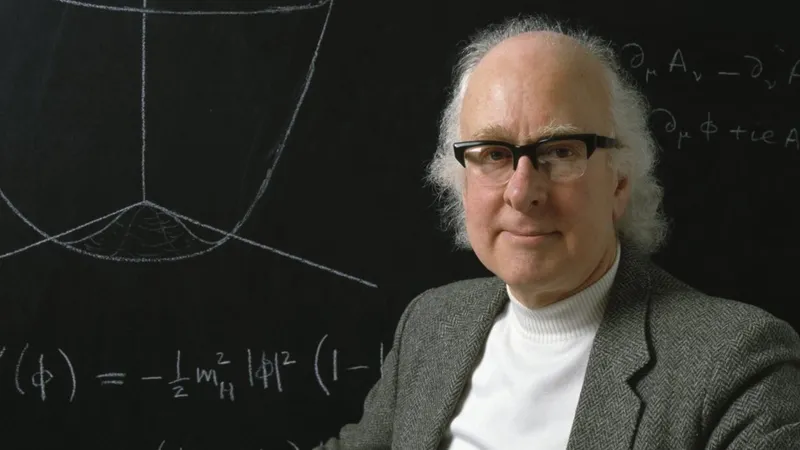Peter Higgs: Reflecting on the Legacy of a Universe-Altering Mind
Professor Peter Higgs is celebrated chiefly for his groundbreaking work in physics, famously associated with the evocative moniker “the God particle,” or more precisely, the Higgs boson.
In the 1960s, while contemplating the fundamental puzzle of why atoms, the building blocks of the Universe, possess mass, Higgs conceived a revolutionary theory. His pursuit to unravel the cosmic glue that binds the universe together sparked a fifty-year odyssey in the realm of physics.
The apex of this quest arrived in 2012, when scientists at the European Organization for Nuclear Research (CERN) in Switzerland, harnessing the colossal power of the Large Hadron Collider, finally detected the elusive Higgs boson. This monumental breakthrough not only affirmed Higgs’s theoretical framework but also culminated in the completion of the standard model of particle physics.
Despite his towering stature in the scientific community, Peter Higgs remained famously reserved, favoring the quiet pursuit of knowledge over public acclaim. Reflecting on his accomplishment, he humbly remarked to journalists, “It’s very nice to be right sometimes.”
Born in Newcastle upon Tyne in 1929, Higgs displayed early brilliance in the sciences during his schooling in Bristol, where he earned accolades in chemistry. Following a doctoral journey at King’s College, London, Higgs embarked on an unwavering quest to unlock the enigma of mass, eventually finding solace for his theory at the University of Edinburgh.
Higgs’s seminal work encountered initial obstacles in gaining acceptance, partly owing to its intricacy. However, his perseverance prevailed, and his theory, honed over years of painstaking study, was eventually published in 1964, coinciding with similar breakthroughs from other scientific luminaries.
Although scientific progress is inherently collaborative, Higgs’s name became synonymous with the particle he postulated, as the global scientific community embarked on a five-decade expedition to unveil its existence using state-of-the-art technology.
Even after retiring from the University of Edinburgh in 2006, Higgs remained engrossed in the developments at CERN, eagerly anticipating the epochal validation of his theory.
The epithet “the God particle,” popularized by the media, garnered criticism from scientists who stressed the importance of evidence-based inquiry over religious connotations.
Upon the long-awaited confirmation of the Higgs boson’s discovery, Higgs graciously acknowledged the fruition of his life’s work, grateful for witnessing the realization of his theory within his lifetime.
In 2013, Higgs was awarded the Nobel Prize for Physics, a fitting tribute to his profound contributions to our comprehension of the fundamental workings of the universe. Yet, despite his scientific acclaim, Higgs remained unassuming, prioritizing the pursuit of knowledge over personal accolades.
Reflecting on Higgs’s enduring legacy, colleagues and friends reminisce not only about his scientific brilliance but also his unassuming demeanor, embodying the essence of a genuine scholar dedicated to the relentless pursuit of truth.



















